History is a fascinating subject. The history of us humans spans over 300,000 years, and it's been marked by victories, tragedies, and all other kinds of drama.
When it comes to the most significant event in their lifetime, most Americans chose 9/11 in a 2016 Pew survey. It's the one event that all the generations – Baby Boomers, Gen X, and Millennials – agreed defined what it means to be American.
But history happens all over the world, and some events capture the interest of history buffs more than others. Recently, enthusiasts shared their fixations after one netizen asked: "What is the one event in history you're obsessed with and can't stop researching?"
The answers ranged from events in 16th century England to the present decade. So, if you're prone to going the rabbit hole of history, be warned: the entries in this thread might cause an involuntary obsession.
#1
The Chernobyl Explosion.
AlterEdward:
Yeah, I find this so fascinating. It's got a bit of everything - corruption, technology, tragedy, heroism, conspiracy. And the concept of radiation as an invisible, silent killer is so creepy. There are so many echoes of paranormal and mythological threats - to people that don't know any better, radiation poisoning sure does look like a curse, or a dieties wrath.
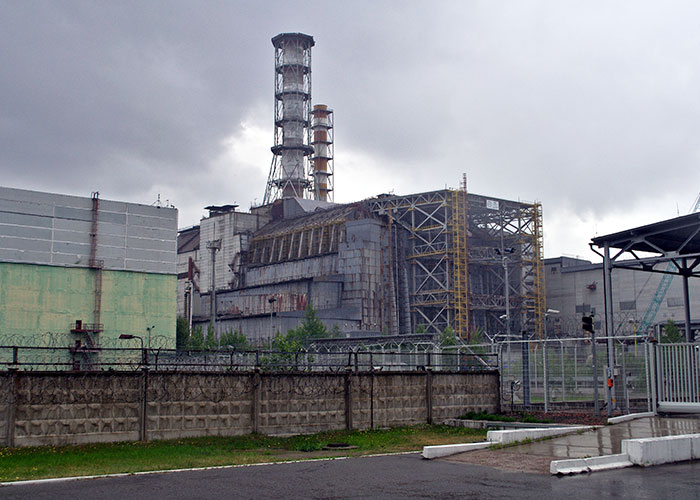
Image credits: murch_da
#2
The administration of Saddam Hussein in Iraq. Epic s**t show. Of all the psychopathic 20th-century dictators, Saddam didn't have nearly the highest body count, but I think he was the most sadistic. His sons were just as evil.

Image credits: i_luv_pooping
#3
Marburg virus originating from Kitum Cave in Kenya. 90% mortality rate virus you can just get from visiting a cave. Scary and intriguing.

Image credits: More-Beginning-3054
It's nice to learn something new about history. If not for your own amusement and interest, then to learn more about certain events and perhaps even debunk widely-believed stories. After all, being be able to wag your finger at other people and say: "Um, actually..." can be pretty satisfying.
For example, did you know that Marie Antoinette never said, "Let them eat cake"? This one fun historical fact might've gotten lost in translation. What she actually said was "Qu'ils mangent de la brioche," which translates to "Let them eat brioche."
While we may not think brioche to be that bougee nowadays, back in those days, it was considered to be a luxury food as it contained butter and eggs.
#4
The 2008 recession. Everything about that era explains , LIKE A MAP, how we got to this point in US history. I am obsessed with it.

Image credits: HumanistSockPuppet
#5
Tudors, specifically Anne Boleyn and other Tudor women.

Image credits: _burnthis_
#6
Titanic.

Image credits: jsklmnop
What's more, no one might've said, "Let them eat cake" at all. This anecdote appears in Jean-Jacques Rousseau's Confessions, and Marie Antoinette was still a child when the book came out. Rousseau recounts that "a great princess" uttered the phrase, but historians don't know who that was exactly.
Some speculate that revolutionaries, whom Rousseau greatly inspired, picked up this quote and falsely attributed it to Marie Antoinette. Yet contemporary researchers disagree, as there was never any actual evidence in newspapers, pamphlets, or any other revolutionary-published materials.
#7
Hiroshima. I visited there a few weeks ago and as an American, it feels odd going to a place like that. The Peace Park Memorial is beautiful and heartbreaking all at once.

Image credits: loverbf_3019
#8
The end of the Soviet Union.

Image credits: So_Call_Me_Maddie
#9
The Dance Epidemic. What was thaaat?!
FawkMyLyfe420:
The dancing plague of 1518, or dance epidemic of 1518 was apparently a case of dancing mania that occurred in Strasbourg, Alsace [now modern-day France] in the Holy Roman Empire from July 1518 to September 1518. Apparently somewhere between 50 and 400 people took to dancing for weeks. There's too many theories behind what happened and the most popular one is a stress-induced mass hysteria... Other theories include ergot and there's a lot of controversy about how many deaths there actually were.
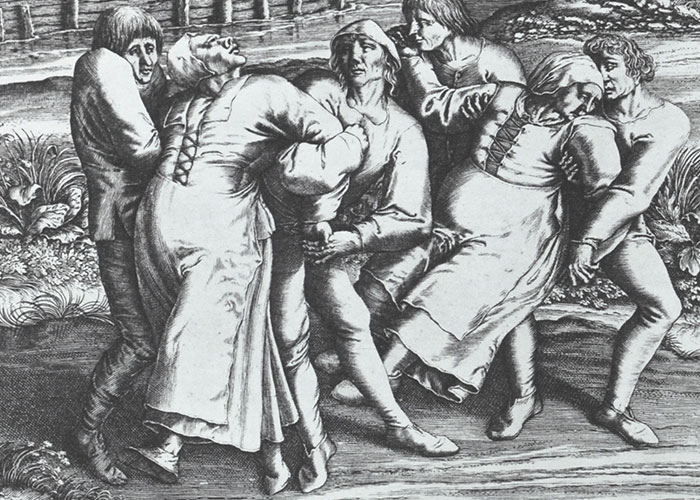
Image credits: WhatINath
When we think of Salem, the burning of witches probably comes to mind, right? However, during the infamous Salem Witch Trials in 1692, no people were actually burned at the stake. That only happened in Europe during the medieval ages. In Salem, they didn't burn the witches at the stake, but hanged them instead.
#10
Pre-history. When early modern humans encountered Neanderthals.

Image credits: Chrome_Armadillo
#11
Black Death or Bubonic Plague.

Image credits: Known_Masterpiece972
#12
I always come back to the Zodiac k***er.
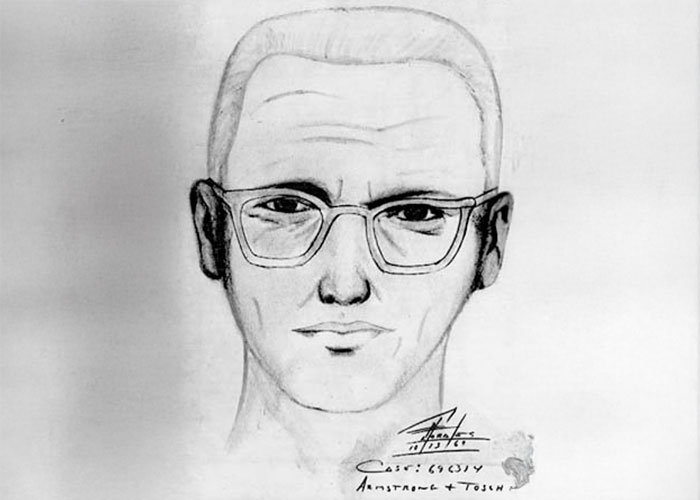
Image credits: justadair
Yet the hangings were just as horrible as the myth. Dr. John Howard Smith, a history professor at Texas A&M University-Commerce, goes into more detail: "The hangings didn't go as you see in films either – with a platform and a trap door."
"They turned victims off a ladder, so they slowly strangled to death. They didn't break their necks and have 'lights out' like it happened in later hangings," the professor explained.
#13
Krakatoa eruption.. absolutely huge. One of the loudest sounds ever heard, massive Tsunamis, ash filled the sky around the world for years causing red sunsets and darkness. Global temperatures dropped.
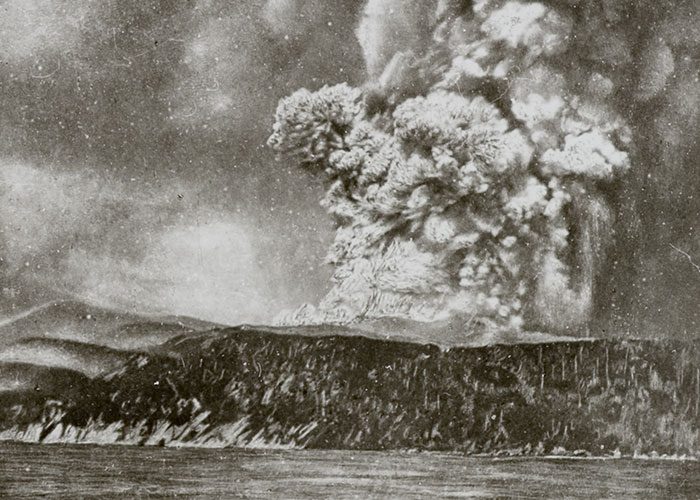
Image credits: gatvolkak
#14
The story of the Uruguayan rugby team that crashed in the Andes and was stuck there for 2 months. The details are mind boggling.
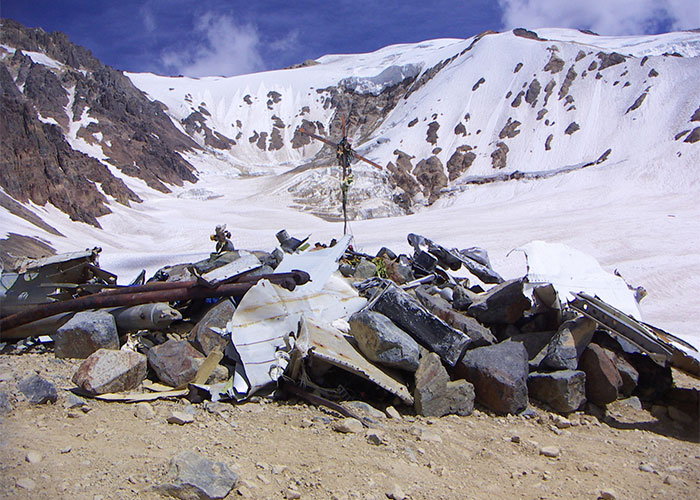
Image credits: SallyMutz314
#15
Joan of Arc, and in general these young saint girls from the middle ages who claimed they talked to god. But Joan especially. Her story is beyond belief and we know so much because much of the documentation remained.
This f*****g 17 year old peasant girl went to see Charles VII, dauphin of France, to tell him that God sent her and that alone seems like a big deal but isn't (plenty of girls claimed to be inspired by God then); the big deal is she told him God sent her not to bless him, but to lead his army to break the siege of Orleans and then drive him to be crowned King of France.
This is not fiction or exaggeration, is precisely what happened (and through no small risk or pain for herself, cause when at home she insisted with her parents that she needed to go join the army, her father assumed she would end up a camp prostitute, and to avoid the shame, he considered drowning her).
Now imagine a 17 year old girl today going to Volodymir Zelensky and telling him "hey buddy, God says you need to make me commander in chief of your troops; I'll take care of the rest". That's what happened.
Except it was 1429 and back then this s**t was taken seriously. Charles VII was no idiot, he thought: "maybe this girl is just nuts". Here's the issue though, that would never cross our mind today, but it absolutely did in 1429: "What if she's not nuts?"
So what do we do? We test her. So Charles sends her to be examined by priests and general wise men. Who conclude three things: 1. Joan is not crazy. 2. Joan is a good catholic and 3. Joan is virgin (and that's a big deal)
"F**k it", says Charles, he gives armor, a weapon, a horse, a banner. And an army. It's still unclear how this 17 year old girl who barely ate was going around in platemail, but she was. And the b***h rides to Orleans, breaks the siege as promised, but not before sending to the english the most f*****g badass letter of warning ever which I encourage you to read but says (and I paraphrase, but not by much): "King of England, pull back your troops and leave, because I am a war leader and I am sent by God; and as long as your troops leave I will show mercy, but if they do not I will wipe the f**k out of them wherever I see them".
And all of this is the LEAST known part of her story since her trial by the I*********n is the most well known. Trial in which they have a hard time accusing her of anything because despite an i*********n tribunal entirely bent on burning her at stake (on orders from the english and with the tacit approval of the french who betrayed her), for whatever reason this peasant girl who we cannot tell for sure if she can even read is able to avoid all the rhetorical traps in which they try to lure her. She handles herself so well in looking like a good catholic that the only way they manage to condemn her is because she dresses like a man (immoral and heretic, for the time).
Even so, the way the i*********n work is not that they just condemn you and burn you; you always have the possibility to admit your guilt, recant and be freed (as long as you don't commit the same sin you recanted, in that case you go straight in the fire).
Joan is shown the pyre as a threat, and she decides to recant. She asks and receives forgiveness and should be freed, as long as she stops wearing men's clothes.
So what happens? We don't know. She is found dressed like a man in her cell again. A theory is she is threatened by the guards of r**e and she feels safer dressed like that; she should be, after all, prisoner of the church and guarded by priests but she is (against i*********n rules) in military custody. Maybe they just left her men's clothes and she naively wore them. Whatever the case, they get her and she burns. It's said that in later years, as her legend endured and grew, her executioner went desperate that he'd go to hell for having k**led a holy woman.

Image credits: Golvellius
But what are your recent history obsessions, Pandas? Don't hesitate to share them with us in the comments and potentially inspire other Pandas to find their new fixations! And, if you're looking for more interesting facts about history, check out our previous post here, here, and here!
#16
The Nanking event. It's just so inhumane and atrocious I can't stop thinking about those poor innocent people.

Image credits: Axient
#17
The last Russian royal family— Nicholas, Alexandra, Olga, Tatiana, Maria, Anastasia and Alexis. From incredible privilege to violent extinction, they were a loving but tragic family overtaken by extraordinary circumstances. There are so many family photos, written accounts (including their own letters) and official portraits to view, you really get a sense of them as people. I started reading about them in the 80s, long before their remains were found. It was one of the biggest historical mysteries back then. I always wonder why Nicholas didn’t at least get the girls out while there was still a chance.
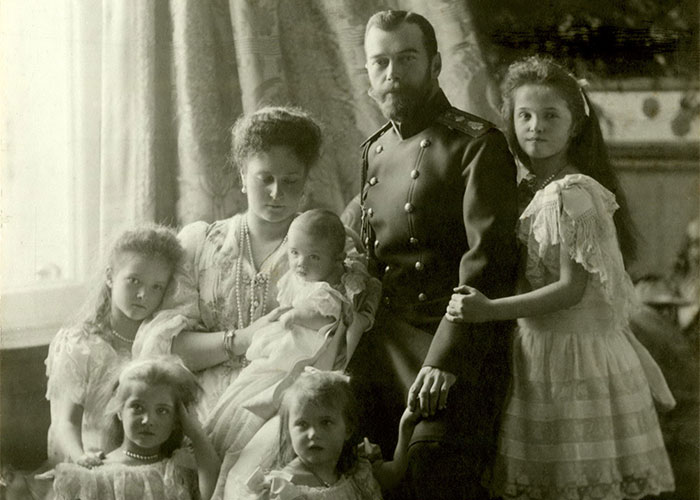
Image credits: PinkRoseBouquet
#18
The invention of the escalator.

Image credits: trufus_for_youfus
#19
Khamar Daban incident. A group of hikers basically start bleeding from the eyes, clawing at their throat then turn feral and drop dead. Only one survived, reason range from everything to it was a lie/exaggerated to they came across a military testing location for nerve gas.
Basically reads like 28 days later but irl.
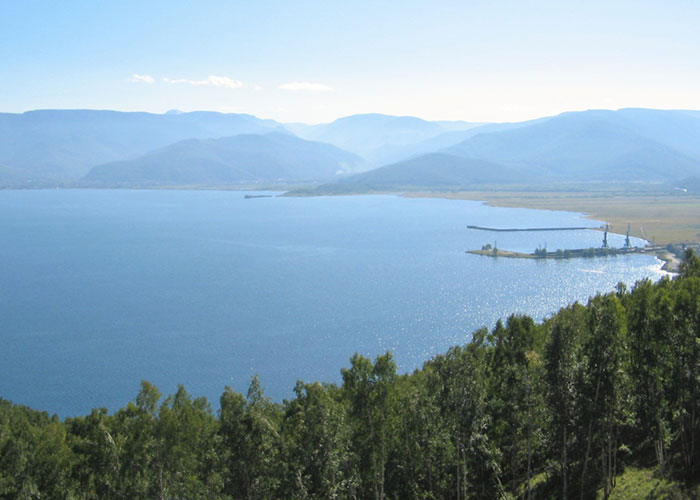
Image credits: CFO-Charles
#20
Might be a little too recent but January 6th and the massive parade of fraud and incompetence that lead to it and followed it.
I have no idea why it’s not a bigger deal to the average American. Also I can’t help but wonder what would have happened or where we’d be if one Democrat failed to evacuate.

Image credits: Mrchristopherrr
#21
The Mexican Revolution. Every few months it comes back into my head and I try to go digging for it. There just isn’t enough good english-language material on it and my Spanish suck to bad to try to translate with any confidence.
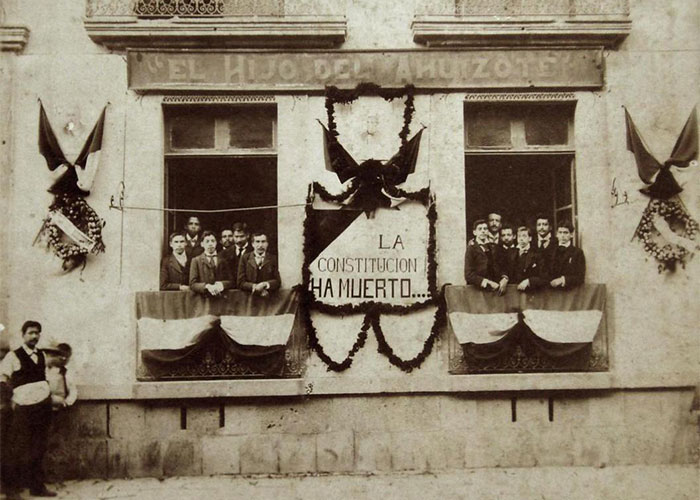
Image credits: Radiant-Importance-5
#22
Pompeii.

Image credits: RainyDaysareLovely
#23
For me, it's Italian organized crime in America from the formation of the five families and the commission by Lucky Luciano until the mob was gutted by RICO in the late 1980s and early 1990s. I'm just fascinated by the power these guys had at the turn of the century. Obviously, this isn't a particular event, but I can't get enough.

Image credits: EmperorDolan
#24
CANNAE…
The time and effort required to slaughter 50,000 men in one day….one at a time…without bombs or bullets or arrows Is unbelievable. The raw calories burned, the feeling of complete satisfaction Hannibal would have felt, the despair and chaos in Rome when news broke.
Eight hours of slaughter, unending. Soldiers would have had to stop for water breaks during. Leaving the front line to towel off and slurp water, then going back to the circle to continue stabbing, slashing and bludgeoning.
Just imagining the cost and resources required for 30,000+ Roman breastplates and swords and gear and helmets is incredible.
Hundreds of Millions of dollars lost, an entire city’s fighting population gone. A literal day of mourning was held because there was NO one in the city that wasn’t effected In one way or another.
And yet Somehow , Rome endured.

Image credits: SneeserSalad
#25
The Vietnam War for me. My dad was there. He’s told me things, but watching these documentaries is just mind blowing to me.

Image credits: Alarming_Artichoke91
#26
The dark ages. I know this has been debunked but that era still feels so eerie and dark to me. It comes right after the fall of the Roman empire and before modern history.

Image credits: KingTechnical48
#27
The American Space Program. Seems like our highest point in exploration. Lots of technology and amazing people were discovered by this endeavor.

Image credits: eyeballtourist
#28
The lobotomy as a medical procedure.

Image credits: mergelefthere
#29
MH 370.

Image credits: Thin_Atmosphere_3327
#30
The station nightclub fire.
2L84AGOODname:
My dads friend WAS there when it happened. My dad supposed to have gone with, but got busy with something else and didn’t. Friend survived, but was burned on a great portion of her body: legs, arms, back, torso. Still has noticeable scars to this day due to the severity of the burns and she’s still cautious about avoiding pyrotechnics anywhere.

Image credits: shredmoondo
#31
Bolshevik revolution and the Romanovs. We covered it in high school and something inside me just sprang to attention. I’m not even Russian, I just can’t stop researching the Romanovs and their family dynamics.
#32
The Challenger disaster. I was three months old when the first Space Shuttle went up in April of '81. I was 5 when Challenger and its crew were destroyed due to gross negligence.
Every time I find out something new, or someone makes a new video/documentary, I'm always interested in case there's something else I didn't know. Nothing can change it or change my mind about what happened and why it happened, but I just have to collect as much info as possible.
Always listen to the engineers, not the bureaucrats.
#33
American Slavery
I've been in a YouTube wormhole for months learning about the slave ships, how they were sold, their daily lives, diets, living quarters, a***e, breeding, t*****e etc.
It's just so profoundly wrong, I find it hard to believe it went on for so long. All for cotton, sugar and tobacco.
#34
The disappearance of the Roanoake colony.
Delaneybuffett:
I just watched some history clips on YouTube saying they have solved what happened to the colony. I want to read up to see if what they say is true. They said the colony basically split up, part combined with a local Indian tribe on Croatoan island ( which is now known as Hatteras. Other members went inland. Supposedly they have found pottery and skeletal remains to confirm these theories. Again, not saying it’s 100% solved just interesting and something I want to read more on
#35
World War 2.
#36
The Maya and other Meso or South American cultures. Always new and interesting things being discovered. The event I used to be obsessed with was the "disappearance" of the Maya... except they didn't disappear and there are millions of Maya alive today, big misconception.
I really like the work of Ed Barnhart after seeing a few of his series on The Great Courses.
Wired Tech Support
He also has a fun Podcast called ArchaeoED.
#37
Anything involving the CIA overthrowing some s**t that was absolutely not their business. Banana Republics especially are just crazy to me. That whole section of history was not that long ago and was absolutely skipped over in my history classes at least. To me, it highlights the danger of letting big business get too powerful and turning capitalism into dictatorship.
#38
The North American chestnut blight :( the old growth forests in the north eastern part of what is now the u.s were surreal. Those ecosystems were what fairytales are made of. We can hardly imagine the world it would have been then, knowing what it is now… I think about it almost every day, it’s not healthy, lol. so much lost to the insatiable greed of colonial expansion, the chestnut trees not even the worst of it.
#39
As an ExMormon, Mormonism. I can’t believe how incorrect I was about what I claimed to believe for three decades.
#40
Lately, it's been Teddy Roosevelt, particularly an expedition he led in 1913-1914 to map out a newly discovered river in the Amazon basin. S**t went absolutely sideways and Teddy nearly died! Check out an excellent book by Candice Millard titled *The River of Doubt*.
Next up, Stephen Oates' biography of John Brown, *To Purge this Land with Blood*.
#41
Mass graves in Chicago.
No, this is not an isolated incident, there are multiple events.
The poor farm and insane asylum.
Confederate soldiers.
Even as recently as the 90's 68 unclaimed dead from the heat wave.
I don't really go out of my way to keep looking, but I get little glimpses of historical stories and places and can't help but dig deep and suddenly we're in mass grave territory again.
#42
The Christmas Truce in WW1. There is something so beautiful about it. Ignore what happened the next day.
#43
The Bronze Age Collapse.
Around 1200 BC, every sophisticated culture around the Mediterrean fell apart. The Greeks, the Hittites, the Phoenicians, the Egyptians, everyone. They were either completely wiped out or decimated to the point where it would take centuries to recover.
No one knows exactly what happened, but there are vague references to "sea people" and famines and droughts. The Iliad and the Exodus may both be a twisted race memory of this event.
#44
Polar exploration in general and the Franklin Expedition in particular. I just like doomed expeditions to harsh and inhospitable areas.
#45
It's not a single event so much as the entire reign of one king, but Edward II of England is absolutely fascinating. If your only knowledge of him is the wimp in *Braveheart* (not remotely historically accurate), then please do look up the real guy. He butted heads a lot with his father (Edward I, a.k.a. Longshanks--not quite the psycho *Braveheart* depicted, but tyrannical toward his conquests like the Welsh... though the English friggin *loved* that dude), though they were both martially talented, and was... for all intents and purposes, extremely modern for medieval royalty. For one thing, he floated the idea of actually granting Scotland independence (pre-Battle of Bannockburn), just to see what they'd do with it. He was also as close as a medieval Englishman could get to being openly bisexual, which caused its own problems among the [Lords Ordainers](https://en.wikipedia.org/wiki/Ordinances_of_1311) (lead by his own cousin Thomas, 2nd Earl Lancaster, because the Plantagenets were one effed-up family).
Edward, Queen Isabella, and Piers Gaveston (depicted in *Braveheart* as the guy Longshanks tossed out a window--absolutely did not happen) actually seemed to have a nice little polycule going before the Lords Ordainers destroyed it--which caused a schism, since there were several who were *very opposed* to executing Gaveston on trumped up charged. This cleared the way for Hugh Despenser the Younger to become the new favorite, and Hugh... well, I'm pretty sure he's actually who George R.R. Martin based Littlefinger on (he was greatly inspired by *The Accursed Kings* book series, which ends with Edward II's "problems" spilling over into France). Hugh ices out Queen Isabella, and this leads to a brutal civil war.
And who ends up on top in the end? Why, the chief Lord Ordainer's little brother who kept his nose relatively clean until he couldn't afford to stay out of London B.S. anymore, and who had a disability (*torticollis*). In the Middle Ages.
It's a crime that this hasn't been a movie or TV show yet.
#46
This question makes me think of A Midwife’s Tale. It’s a diary of a midwife in New England in the end of 1700’s - early 1800’s. It was dismissed as a nothing journal until Laurel Thatcher Ulrich got a hold of it. It’s a goldmine of knowledge of the daily life of an “ordinary” midwife. That whole era and what she wrote about her community is extraordinary. The whole book Ulrich compiled detailing this journal is beautiful. My respect and understanding of the trials and joys those that came before me grew so much from this book.
#47
The Donner Party. I got super into reading about it last year, and it's just heartbreaking. I think about one woman in particular who ended up taking care of a bunch of the children. She had gone blind and was barely sane by the end, but she kept the d**n children alive.
"Mrs. Murphy was so kind to the little children that we remember her affectionately. It was always my impression that the last [third] relief party took from the cabin Frances, Georgia and Eliza Donner, and Simon Murphy. As we were ready to start, Mrs. Murphy walked to her bed, laid down turned her face toward the wall. One of the men gave her a handful of dried meat.--She seemed to realize that we were leaving her, that her work was finished.".
#48
Shipwrecks in general. Started with the Titanic, now I’ve watched countless documentaries and read articles and listened to survivors stories from every ship sinking I can find. Lusitania. Britannic. Arctic. Atlantic. Eastland. Costa Concordia. Edmund Fitzgerald. Sea Diamond. And so many more.
#49
Did some research on the history of snowmen after I learned that the earliest recorded piece regarding snowmen was from 1380, and I absolutely LOVE that it's something that has continued and evolved with time. It's such a cool little piece of history that you don't think too much about, but has brought so much joy to people for hundreds of years.
Befor the 1950s, snowmen were more often on the elaborate side, created by artists as art for art's sake, but also used for things like protesting (like the miracle of 1511). The man who sculpted Abraham Lincoln's tomb created a stunning snow and ice statue in 1857 that became very famous. Art supplies have always been very difficult for many people to acquire through history and artists used whatever they could to create their art, and snow was something that was easily accessible for many, so it was its own special medium for awesome sculptures that people had access to, regardless of income or status. It wasn't until the 1940s that snowmen became an activity that children took part in, and we have Ruth Herman's book Snowy The Traveling Snowman to thank for what the western world now recognizes as a snowman.
Snow sculptures obviously didn't last and people often put so much work and time into them regardless, and I feel like that is such a wonderful and human thing. The urge to create something special, even if it won't last long.
#50
The Nixon Administration. Amazing how a such cold cerebral and vindictive person with little charisma could get elected twice after losing twice in disgrace and have such extremes in terms of achievements and self inflicted wounds.
#51
The 1996 Everest Disaster.
catontoast:
Same! Recently reread Into Thin Air and watched the Hollywood film Everest - still haven't seen the documentary that was being filmed up there at the time.
The debate over who, if anyone, is to blame for the worst parts of the tragedy - and Krakauer's depiction in the movie - is fascinating. Especially when you're dealing with bodies stretched to their limit in an incredibly dangerous environment that's literally causing you to die - and certainly affecting your ability to think.
I ended up branching out into other disasters on the mountain like the 2015 Nepal earthquake and other famous mountaineering disasters. There are a ton of great books out there.
Also Outside magazine, where the article version of Into Thin Air was published, has staff up at Base Camp this year, so there will be articles and videos coming out of that.
#52
Jonestown. Have to admit it.
Downtown_Dish6866:
When I was a child a remember seeing “National Geographic Magazine“ images of the Jonestown Massacre. I was too young to understand what happened, but the images were scary as hell.
#53
The Great Dying extinction event.
#54
Dyatlov Pass Incident.
#55
Hurricane Katrina.
#56
Austro-Hungarian parts of World War I. Those people had no business fighting a war. Most of their soldiers hated them.
#57
JFK & MLK assassinations. There is a great book called Hellhound on his Trail about the search for James Earl Ray that reads like a thriller.
#58
The Civil War. Mostly about Gettysburg.
#59
Invasion of Normandy on D Day. My dad landed on Omaha Beach on D Day, and lived and fought in the mud in France for 2 years.
#60
Unit 731 is so fascinating. America gets absolutely no education of biochemical warfare/human experiments past the h*******t.
#61
Iron age - I'm interested in how the old testament ties in with known history.
#62
U.S. internment camps during WW2.
#63
Selena’s death. This story is very tragic and heartbreaking. 💔😭.
#64
Not an event persay, but the Hindenburg and history of airships fascinate me. The difference in comfort between airships and fixed-wing flight was like night & day. If it had been allowed to mature, international travel might have been vastly different.
#65
Jack the Ripper.
#66
The union battle of Blair Mountain, WV. The largest labor uprising in American history and the very first of two times America openly bombed its own citizens. There’s a couple of fantastic documentaries on it, and highly recommend researching it further.
#67
Taisho and Early Meiji Era Japan. Beyond that though, lynchings in the US. In fact, I'm working on a mapping project for 20th century lynchings. For 1900 through 1950, I have over 1,300 entries so far with another roughly 1,000 to go through.
#68
I'm interested in ancient history like Sumer as well as prehistory and pre-homo sapien.
#69
The Apollo 11 moon landing, I can’t stop digging into the details of how they pulled off such an incredible feat with 1960s tech.
#70
The Bosnian War. Largest conflict in Europe since WWIi until the invasion of Ukraine and yet so rarely discussed for some reason.
#71
The growth and subsequent fall of the Roman Empire.
Their legacy still lives on millenia later with our judicial systems, political systems, educational systems, etc.
#72
The persecution and extermination of native Americans, and the annexation of their lands by the US government. Probably the most shameful chapter of US history and most people don't even know about it.
#73
Nigel Farage caused the worst economic damage to the uk in history and he’s now leading the second most popular party.
#74
The library of alexandria burning down.
like… how do you accidentally delete humanity’s biggest group project and just *move on*?
#75
Human evolution and our Hominid ancestors.
#76
The Columbian exchange. I love food history and it's crazy learning how many staples originated in the Americas.












 English (US) ·
English (US) ·